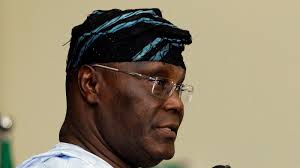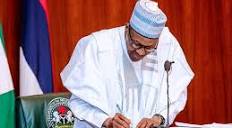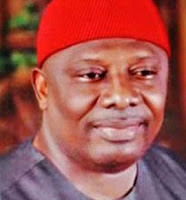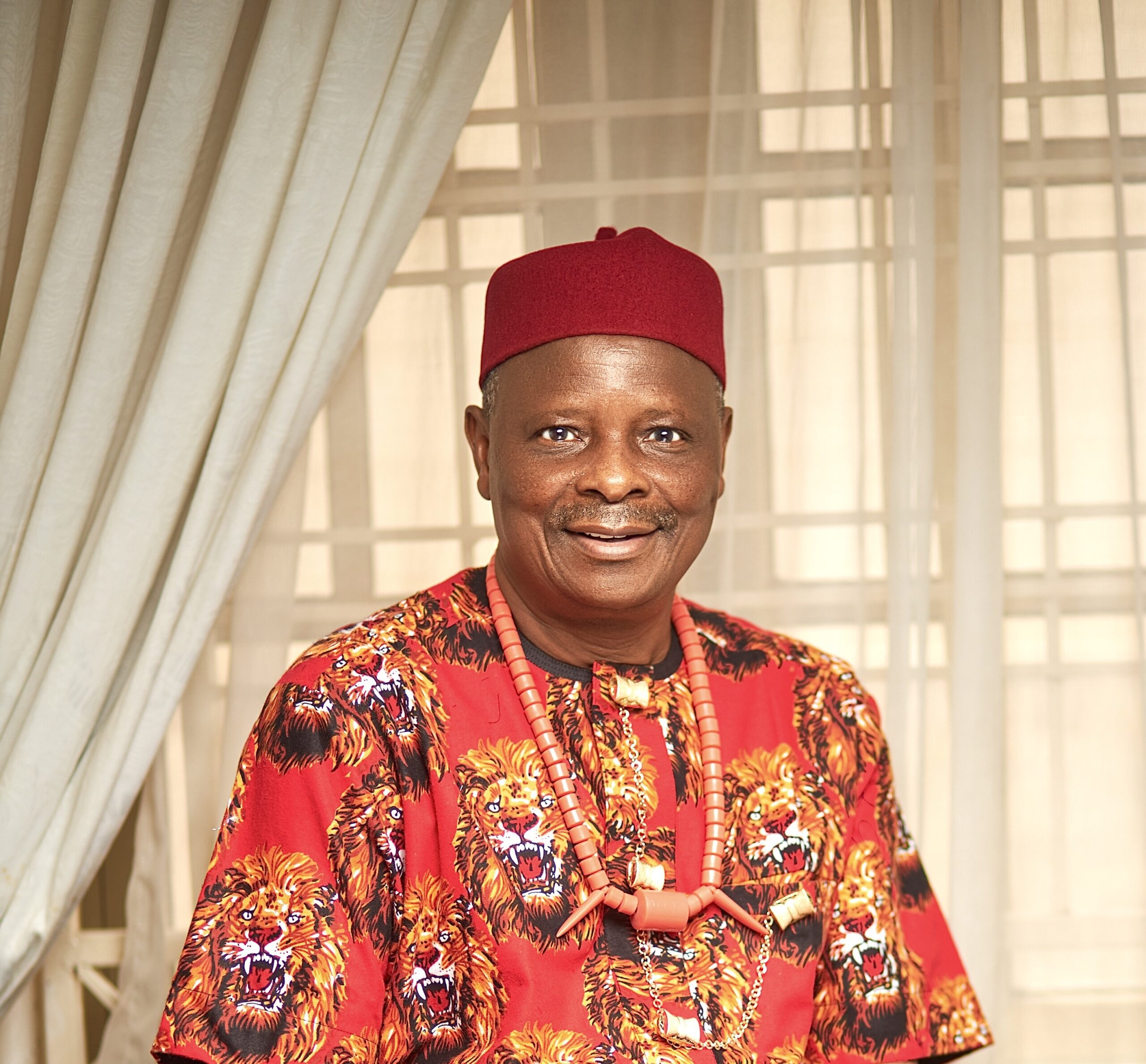By Tunde Olusunle
I visited the Asokoro, Abuja home of Nigeria’s former vice president, Atiku Abubakar, the other day, to observe the iftar with him, as part of the month-long Ramadan fast. Atiku very ably hoisted the presidential flag of the Peoples’ Democratic Party, (PDP), during the last general elections, as we remember. The flames and flickers of the fires stoked by that insanely corrupted poll, remain alive and active. The world “ain’t seen the end of the saga as yet,” to appropriate that popular American expression. The Wazirin Adamawa, (traditional prime minister of Adamawa) as he is also very well known, was just coming out of the house for the first time that day, apparently. Atiku is a very religious and studious character who loves paperwork. You fall in love with his handwriting when you glean his minutes on a document. Warri folks, famous for their earthy, standout variety of pidgin English will put it like you go like the writing die, my guy. Not to talk about his striking signature.
He walked straight to the foyer which had been laid out for him to refresh and receive guests before attending the Maghrib prayers, when I arrived. We, his associates and officials, exchanged banters with ourselves as we accompanied Atiku to the dining room thereafter. Babalele Abdullahi, Atiku’s finance director and Ibrahim Zango, his principal secretary were in tow. Andy Okolie, Atiku’s eternal speechwriter looked in the direction of Azu Ndukwe, veteran medic and personal physician to Atiku in the last three decades, and started a conversation about me. “People rarely appreciate that you are very tall, Tunde. And this is because you are huge. Standing close to you now, I can see that people can easily be making a mistake thinking you are just of an average height.” Atiku looked back at us briefly, a soft smile playing on his lips. He had once jokingly tackled me for “obstructing passage” with my tummy at mealtime. That was back in our days in Aso Villa. He operated a virtual “open house” policy which ensured seamless interconnectivity between those of us on the president’s staff and his own officials.

As Atiku took his place at the head of the table, I opted to sit in the direction of Ndukwe and Okolie so we could continue our exchanges. Sunny Mekwunye, who has been with Atiku forever, virtually, waved me to seat next to our principal’s immediate right so that younger guests could take over the southward extreme where I originally opted for. We were still doing all that shuffling when Lucky Igbinedion, former governor of Edo State, and Ben Obi, former adviser during the Olusegun Obasanjo/Atiku Abubakar regime, both breezed in. To lend from the peculiar lexicon of the uniformed services, we had to revert ajuwaya, (as you were, return to status quo). This meant I returned to my former position.
Our dinner, was interspersed with some talking and allusions to contemporary sociopolitics. You could see in Atiku, an unruffled mien, irrespective of the electoral heist he had just been victim of. He remains the calm, very well-informed, liberal-minded, measured gentleman, elder and statesman. His interjections, the dimensions, the illuminations he brought to issues, were borne of aggregated experiences over spans and space. The underwhelming outing of the Independent National Electoral Commission, (INEC), which has been globally acknowledged as the worst in Nigeria’s contemporary political history, was under the scalpel. Voter apathy, explicitly manifested by the participation of just about 25% of registered voters in the process, was referenced as a disturbing development.
Wholesale retrogression in the electoral process which has reversed practically to prehistoric prototypes despite assurances of advancements and innovations, and mammoth investments to that effect, featured on the discussion menu. Voter suppression, vote buying within the precincts of voting areas and the criminal manipulation of the much advertised BVAS device, were alluded to. Barefaced distortions of electoral figures beginning from the polling units, brazen seizures of ballot boxes by miscreants and the destruction of same in many instances, were under review. The question was also asked: Why do we still have to manually move election result sheets, to collation centres? Where is technological deployment in the whole process? That should ordinarily simplify the gamut of the balloting for both voters and officials, and help preserve the sanctity of the vote.
Unsavoury proceedings in various states among during the elections, were also reviewed. Accentuated ethnic dimensions to political rhetoric especially in Lagos, easily Nigeria’s most megalopolitan state, was noted with unhappiness. Suspicions of INEC’s complicity in the declaration of the gubernatorial poll in Adamawa State, as inconclusive, was discussed. Soldiers and the police had taken over Yola, the state capital, the night after the Saturday March 11, 2023 election. The media alerted Nigeria of a grand script to gift the governorship to Aisha Binani, the female APC opponent of Umaru Fintiri, the incumbent PDP governor. Fintiri was coasting home with a headwind of over 30,000 votes over his major opponent, when the election was abruptly halted. There were suggestions and allegations of a scheme to present as “trophy” for Aisha Buhari, wife of the president, who hails from Adamawa State. The story was that she desires to enthrone a female governor before her exit from the Nigerian political stage as first lady.
Kogi, which assumed national and global notoriety since a helicopter was procured on polls day back in 2019, to hover over Lokoja, the state capital and rain live bullets to unsettle voters down below, featured too. It was in this very same Kogi State, that Salome Abuh, an opposition party woman leader, was incinerated in her home by political psychopaths. Her crime was that she led womenfolk under her superintendence to vote against the ruling APC in the state, in 2019. Also recall that agents of state dug all arterial roads leading to the community of the PDP senatorial candidate, Natasha Akpoti-Uduaghan to prevent access by electoral officers for the polls for the presidential and national assembly polls.
In the same Kogi central senatorial zone where Akpoti-Uduaghan was all but disenfranchised, Adavi local government chairman, Joseph Omuya Salami was recorded real-time, chasing voters away from a polling unit, seizing and shredding election materials. Salami was protected in the act and watched by uniformed and armed policemen, by the way. There was also allusion to this bespectacled, grey-bearded old man, most probably a professor, who served as returning officer in some state. He was pure comic relief, barely able to read the election results, even as he started every sentence beginning with abuna, a Hausa expression for “this thing.” He was simply a waffling clown. “What kind of professor is that,” Atiku asked rhetorically? Is he among our best professors? Are professors the only Nigerians who can function as returning officers in such a vast and blessed country,” he questioned further.
Atiku’s main sitting room was getting fuller as we continued our discussions. Longstanding Atiku friend and loyalist, Jide Adeniji, onetime chief executive of the federal roads maintenance agency, (FERMA), was in the house, among other dignitaries. He missed the buffet. There was also a delegation from the Osun State PDP, led by its acting chairman of Osun Akintunde Akindele. Earlier in the day, they witnessed the judicial confirmation by the Court of Appeal of the gubernatorial ticket of Nurudeen Jackson Adeleke the Osun State governor. The seats in the living room were all but taken up by individuals and groups, even as Atiku’s exclusive meeting room was being simultaneously readied for other pre-scheduled meetings and engagements. There was order in the air, evidence that the chief host is a stickler to form and protocol.
Amidst all of these, I asked Atiku: “Your Excellency, how do you maintain such calm, such composure even in the face of the contentious polls which you apparently won, but which victory you have been deprived? ” “I believe,” he began, “that whatever happens to a man in his journey through life, has been prearranged by God. It is advisable therefore that one maintains a calm and focused disposition as much as possible.” Continuing Atiku said: “As one of those who fought for democracy, who was targeted in my Kaduna home by agents of the Sani Abacha government, I’m a wholesale believer in the rule of law. Don’t forget the various issues we tested in the judiciary, all the way to the Supreme Court, during my travails as vice president. I won all of them. We have filed our petition arising from observed irregularities in the last election as you very know.”
Atiku continued: “Despite scepticism about the independence and dependability of the judiciary, especially when hard decisions have to be taken, we pray they will stand on the side of verifiable honesty, truth, justice, democracy and the good people of this country. That will be the hallmark of a truly neutral, forthright, courageous judiciary, capable of holding its own, not necessarily appendaged or subordinate to any other arm of government. That is when we can begin to believe that we are conscientiously building enduring democratic institutions. That is our minimum expectation and the expectation of the ordinary people of this country.” We rose in unison as Atiku joined his guests, every group and individual desiring a photo opportunity with him. I courtesied and sought permission to “fall out” as is said in the military. Atiku obliged, reminding me he looked forward to my next visit.
Tunde Olusunle, PhD, poet, journalist, scholar and author, is a Member of the Nigerian Guild of Editors, (NGE)




